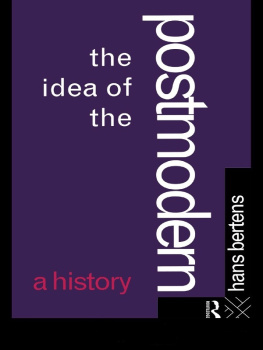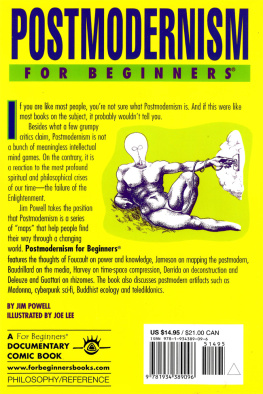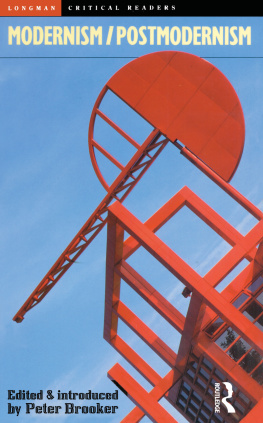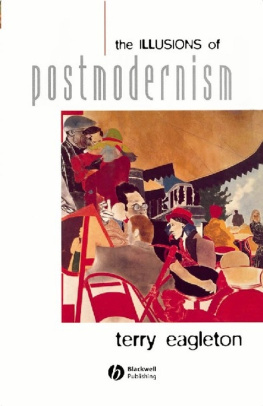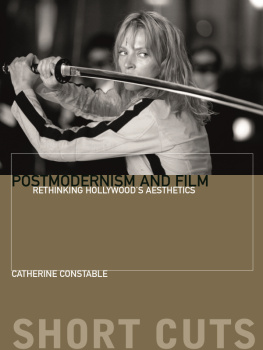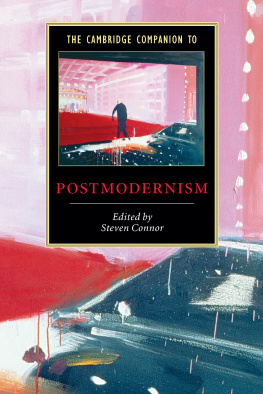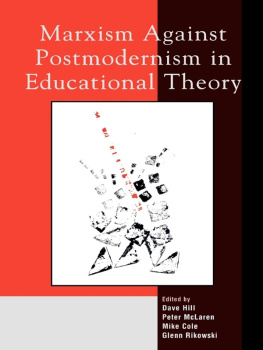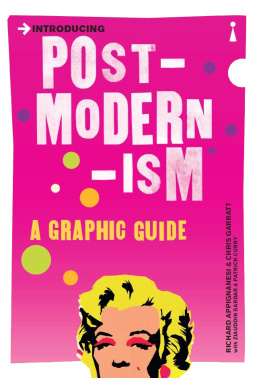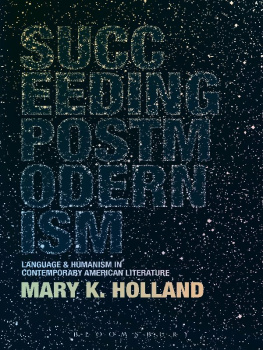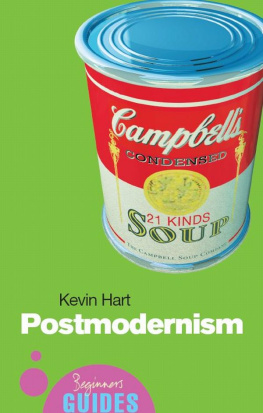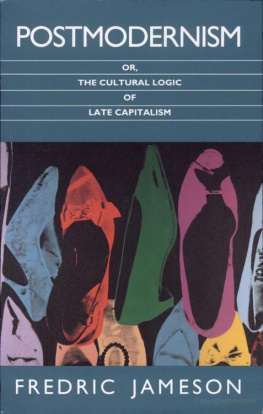This edition published in the Taylor & Francis e-Library, 2005.
To purchase your own copy of this or any of Taylor & Francis or Routledges collection of thousands of eBooks please go to www.eBookstore.tandf.co.uk.
All rights reserved. No part of this book may be reprinted or reproduced or utilized in any form or by any electronic, mechanical, or other means, now known or hereafter invented, including photocopying and recording, or in any information storage or retrieval system, without permission in writing from the publishers.
ACKNOWLEDGMENTS
A book of this kind inevitably builds upon numerous other books and the reader will come across them in my references. But books also have less visible debts. This one certainly does. I want to thank my old friend Theo Dhaen, who, perhaps to contribute to my education, first got me interested in postmodernism, and I want to thank Douwe Fokkema, who institutionalized that interest by inviting me to participate in an early research project on the modern/postmodern divide. Gerhard Hoffman, still at Wrzburg, and Alfred Hornung, now at Mainz, added me to the impressive roster of their Wrzburg conferences, leading to a cycle of intellectually exciting and more generally rewarding experiences, both in Germany and in the US. Closer to home, Willem van Reijen joined me for inspiring walks in the woods and offered lucid and helpful commentary on part of my manuscript. Yet closer to home, Prisca Bertens, in spite of her hectic life as a doctor, still found time and energy to give invaluable support.
I wrote part of this book while enjoying the hospitality of the Netherlands Institute for Advanced Study in the Humanities and Social Sciences, and I would like to thank its director, Dirk J. van de Kaa, and the NIAS staff for a wonderful time.
Finally, I would, at a less personal level, like to thank the following authors and publishers for their generous permission to quote from the parenthesized titles: Zygmunt Bauman and Routledge (Intimations ofPostmodernity), David Harvey and Blackwell (The Condition ofPostmodernity) and Fredric Jameson and Duke University Press (Postmodernism, or, the Cultural Logic of Late Capitalism).
Part I
POSTMODERNISMS
1
INTRODUCTION
Postmodernism is an exasperating term, and so are postmodern, postmodernist, postmodernity, and whatever else one might come across in the way of derivation. In the avalanche of articles and books that have made use of the term since the late 1950s, postmodernism has been applied at different levels of conceptual abstraction to a wide range of objects and phenomena in what we used to call reality. Postmodernism, then, is several things at once. It refers, first of all, to a complex of anti-modernist artistic strategies which emerged in the 1950s and developed momentum in the course of the 1960s. However, because it was used for diametrically opposed practices in different artistic disciplines, the term was deeply problematical almost right from the start.
Let me offer an example. Clement Greenberg, for more than thirty years easily the most influential art critic on the American scene, defined modernism in terms of a wholly autonomous aesthetic, of a radically anti-representational self-reflexivity. For Greenberg, modernism implied first of all that each artistic discipline sought to free itself from all extraneous influence. Modernist painting had thus purged itself of narrativethe presentation of biblical, classical, historical, and other such sceneswhich belonged to the literary sphere, and had turned to a necessarily self-reflexive exploration of that which could be said to be specific to painting alone: its formal possibilities. From this anti-representational, formalist point of view, postmodernism gives up on this project of self-discovery and is a (cowardly) return to pictorial narrative, to representational practices. Architectural postmodernism has clear affinities with this. For Robert Venturi, Denise Scott Brown, Charles Jencks and other theorists, modernist architecture is the purist self-referential architecture of the Bauhaus-Mies van der Rohe, Gropius, and othersand of the corporate architecture of the postwar International Style. Postmodern architecture turns away from this self- absorbed and technocratic purism and turns to the vernacular and to history, thus reintroducing the humanizing narrative element that had been banned by the Bauhaus group and its corporate offshoots.
However, for many of the American literary critics that bring the term postmodernism into circulation in the 1960s and early 1970s, postmodernism is the move away from narrative, from representation. For them, postmodernism is the turn towards self-reflexiveness in the so-called metafiction of the period, as practiced, for instance, by Samuel Beckett, Vladimir Nabokov, John Barth, Donald Barthelme, the Surfictionists, the nouveau romanciers, and a host of other writers. For them this particular form of postmodernism rediscovers and radicalizes the self-reflexive moment in an otherwise representational modernism (the self-reflexivity of the later Joyce, especially of

